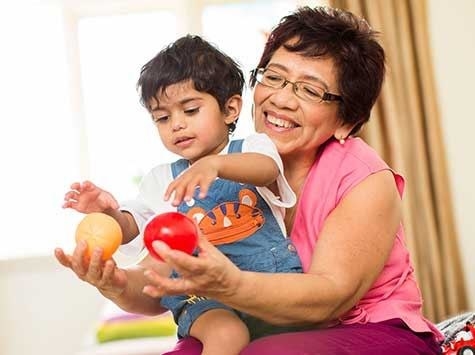
Some experts are of the view that most of the factors develop as a consequence of genetics. This is not to say that the role of conditioning or environment can be overlooked. For example, the potential to use the genetically given traits or qualities are depended highly upon the environment and the honing of those skills. Therefore, the experts in the field often use the terms of ages and stages to highlight the significance of various phases in the life of a person. To put simply, the growth takes place in the primary years of development. For example, the physical, linguistic, social and cognitive skills are nurtured. This is why this article will help the parents in understanding the value of cognitive apparatus development, especially when the children are young in addition to the physical changes. As parents are expected to support the children reach the best potential in terms of guiding them and encouraging the best traits in the children. Likewise, parents would be able to discern the process which makes the children unique from other kids. For instance, the preference of the children is apparent if they like to Ride on toy car, while others like to play with stuff toys. The main point is to underline the difference in personalities of the children.
Infancy (0 – 2 years)

If you are planning to raise a baby, it may seem very hard to you, while some of the new parents tend to get overwhelmed by the excitement and overlook the responsibility attached to the task. However, it is important to know that all the bonds formed in this stage will make long term connections. Likewise, the tendency to relate to the people in the positive sense and good self-esteem are some of the important developments. This means that parents will get many opportunities to figure out the personality of the child, Most of the children have the distinct way of expressing and manifesting the personality traits. Therefore, it is necessary for the parents to respect it and raise the children accordingly.
Toddlers and Preschoolers (2 – 5 years)

This phase often excites the parents, as children learn to take the first steps and it also signifies a stage of development. As a result of the walking stage, children like to freely move around the house in order to explore things and places. This means that they will actively seek new things or experiences in terms of understanding the different environment. Moreover, the linguistic abilities also contribute in growing them as a person in form of naming the things of interests to children; they begin to ask questions in addition to forming the personality traits. Furthermore, the choice of saying no to things is also quite prominent.
Although the physical development is visible to the parents in form of unnoticeable signs in the children, however, the emotional growth is often underestimated by the parents. For example, if you want to emotionally regulate the children, this stage is probably the best time. Moreover, the problem of the meltdown in the children is common, which can be managed with the strong sense of bond with the parents. The main purpose is to help the children in managing the negative expression of emotions in addition to making them understand the value of delayed gratification rather than instant rewards for everything. In addition, saying no to things comes to the children naturally; however, the parents can help them to accept the no as well. Likewise, this stage will make the children ready for school in terms of developing the intellectual abilities. Therefore, parents are expected to pay attention to this part of the development. Some of the parents are interested in social skills of a child, which can be supervised in this stage so that children will not have the problem interacting with the schoolmates. So, the role of the parents as the mentor and supervisor is crucial, which may help the children in learning few of the most significant skills for life.
School Age Children (6 – 12 years)

If you have children who are school going, the task of parenting can become hard for you due to the new changes young kids come across on the daily basis. This is why it is necessary for you to understand them and encourage them to participate in physical activities and celebrate the accomplishments. For instance, one of the good ways of supporting them would be to attend the activities your kids request you to. Similarly, it is good if you can teach them the significance of experience rather than the end results or final goals. As learning and success can help to build the bond and mentor them when your kids need you to. Though the mentoring of the kids of preschool is important, however, if you don’t give them space to make choices and support them in learning new things, it may become a problem. Therefore, it is recommended that you support children in making good choices and attaining skills.
Adolescents/Teenagers (13 – 18 years)

Though teenage children are often considered difficult for parents, however, if parents follow the tips and communicate with the children, the causes of friction can be reduced to a large extent. Likewise, if parents learn to empathize with the children, the children can become your friends. The main aim is to overcome the communication gaps between parents and the teenage children. In addition, these years are defining for the children and the adult life. Therefore, parents are expected to pay heed to this phase in order to make the transition of children into the adult life easier for them.

